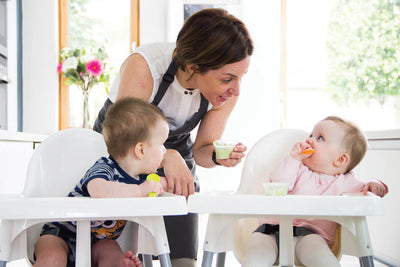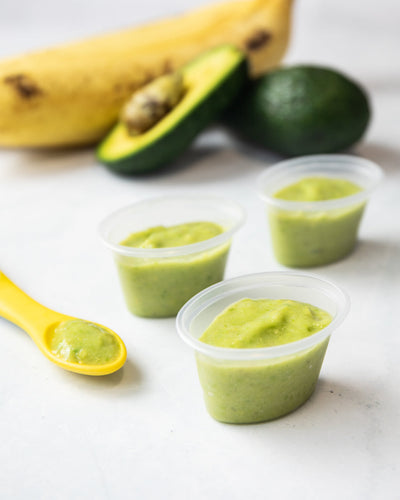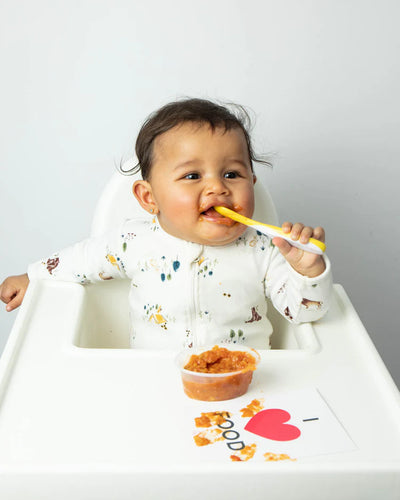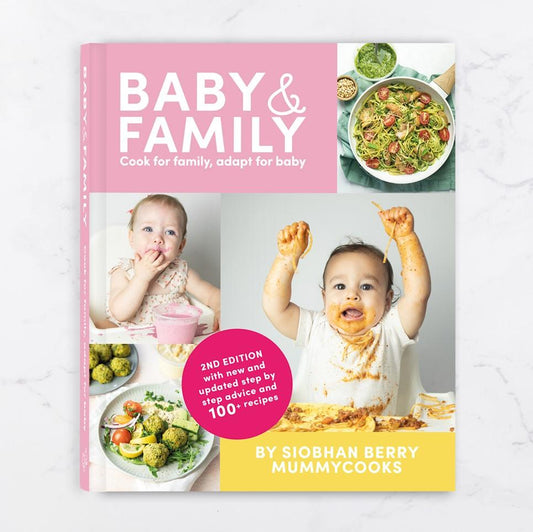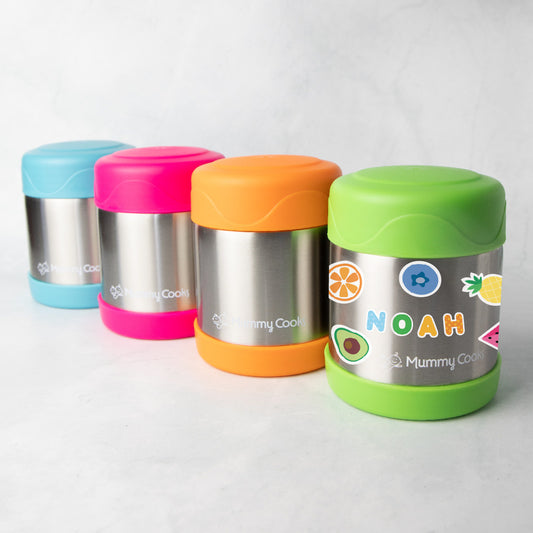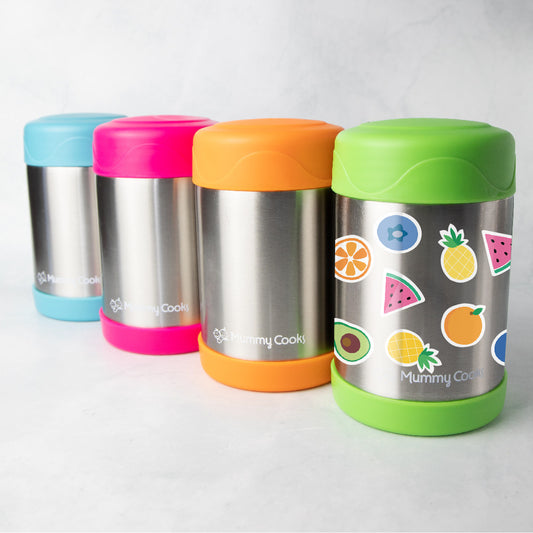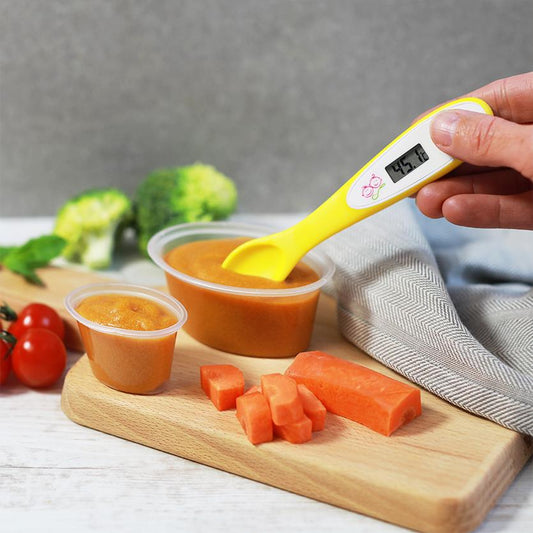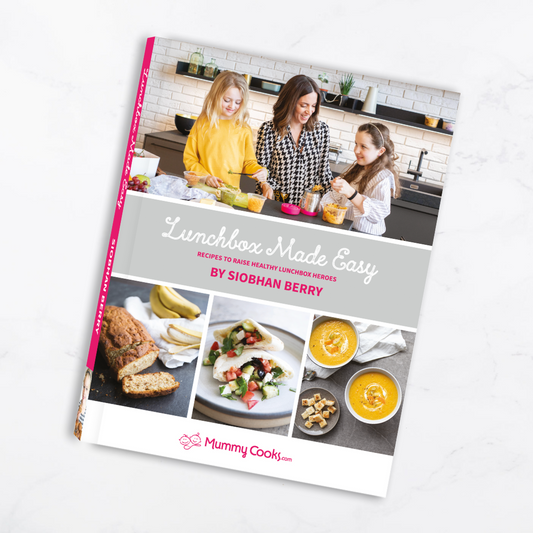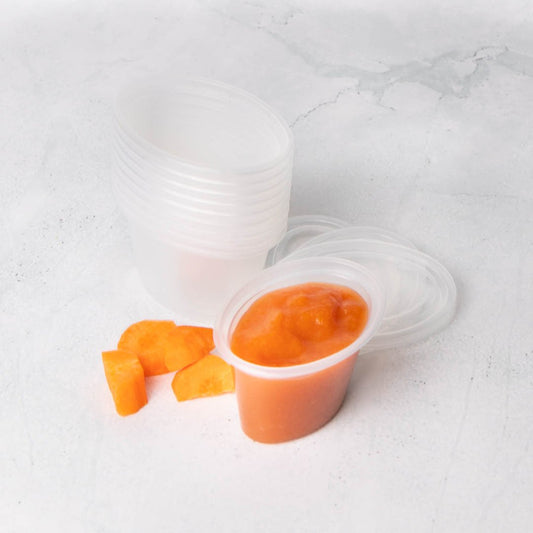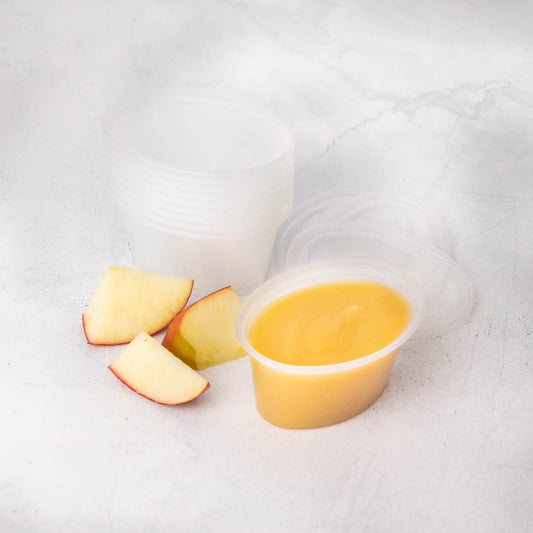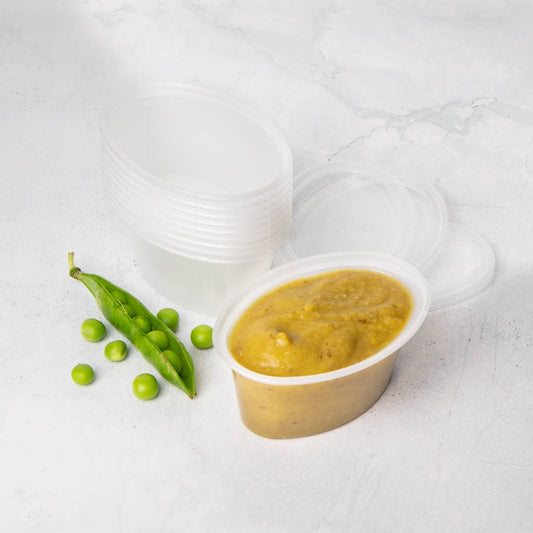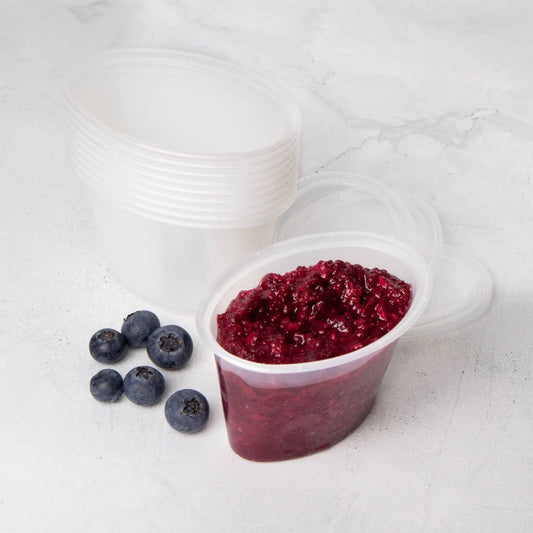At our Mummy Cooks weaning classes we often find that our Mums are all looking to the answers to the same questions, time and time again. With this in mind, our weaning advice in this post will answer the most common questions to help all Mums out there.
When should I start to wean my baby?
We recommend that you start to wean your baby any time from 5 months. This ensures that you have a couple of weeks of runny purees of just vegetables and fruit. Then from six months you are ready to introduce, gluten, meat and fish and finger foods. Check out our more detailed explanation of when to start weaning your baby.
Baby Rice – should I start with baby rice as suggested by weaning websites and books?
There is no harm in starting with baby rice, but I believe starting with vegetables like sweet potato or carrot gives your baby a better idea of what real food tastes like. It is also hard to move on with texture if you are using baby rice. Baby rice has little or no texture so as soon as baby has had a few days of solid food it would be time to move on. If offering baby rice, stir in some grated apple or carrot, for added textures.
Milk – can my baby have milk before 12 months?
The answer to this is yes, they can have cows milk from six months of age, but only with food and not as their main drink. They will remain on breast milk or formula as their main drink until 1 years of age. Add full fat milk to their breakfast or thin down purées using milk to begin introducing it. By offering cow's milk in their cereal from six months, the transition to cows milk as a main drink is less difficult from 1 year.
When should I move onto 3 meals per day?
By 6 months, your baby should be eating 3 meals a day. Starting off with a lunchtime feed, then introducing the breakfast meal and finishing off by introducing the evening meal. It's best to include the protein at lunch in case your baby has a hard time digesting it.
Evening Tea – What should I give my baby for evening tea?
Your baby should eat 3 meals per day and not an evening snack or tea. Breakfast should include a carbohydrate like Weetabix or porridge with some fruit. Then lunch should include a carbohydrate such as potato, a vegetable and some protein such as chicken. Then tea should be a second dinner with say pasta and vegetables but does not have to include a protein.
Potatoes – when to introduce and why can’t you blend them?
White potatoes are not the best first foods, as you cannot blend them because potatoes are a starchy food. Wait until your baby is used to some texture about six months and mash with some milk and butter.
How do you avoid developing a sweet tooth?
The key to avoiding your baby having a sweet tooth is to offer lots of variety and not to exclude sweet foods. Remember your baby is born with a sweet tooth and baby’s milk both breast and formula is sweet. I like to make food more palatable by mixing vegetables with fruit such as parsnip and pear puree. Also by introducing more family type meals from six months ensures that your baby’s food is not too sweet.
I read that I can only introduce one food at a time to make sure there are no allergies.
This was the advice given previously but the new research shows that by offer new food too slowly you are more likely to have a picky eater later on. Our advice is that if you or your partner have no history of food allergies then do not avoid foods and offer your baby plenty of variety.
What portions should I offer my baby?
If you are starting to feed your baby before six months it is essential that you do not deplete the milk intake and so our portion pots help to guide you along each stage. Check out our portion guide here.
What is the best routine for my baby as I start to introduce solid foods?
For a full weaning and feeding routine, check out my Baby and Family Recipe Book.







